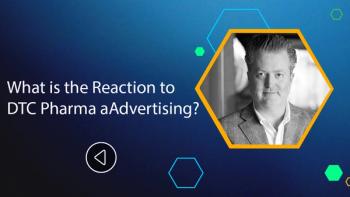
Ensuring Ethical Practices in Light of Potential Misuse
In this part of his Pharmaceutical Executive video interview, Jim Shehan, chair of the FDA Regulatory practice, Lowenstein Sandler, talks about what steps companies developing weight-loss medications should take to ensure responsible and ethical practices.
From a corporate governance standpoint, what steps should companies developing, or marketing weight-loss medications take to ensure responsible and ethical practices, particularly in light of the potential for misuse or unrealistic expectations?
First of all, have to just play by the usual rules in this space. Regarding off label usage, where you simply cannot promote you can, under the FDA rules communicate truth truthful scientific information in a non-promotional manner. I think that’s already going on. The data gets published, it gets discussed at scientific conferences, but I think boards need to ensure that there is no promotional aspect involved. People are hewing to the rules. And now the big companies Lilly and NOFO are fully aware of these rules. They have large and well trained, competent compliance departments. And they in turn train the sales and marketing people. But it doesn't hurt for the board to make sure that that is actually occurring. And exercise some oversight there. Yeah, give us a presentation on your efforts to make sure that there's not off label promotion going on would be one example.
Looking beyond GLP-1 drugs, do you see any broader trends or predictions for the future of the weight-loss medication market? Are there potential legal or regulatory issues on the horizon?
Beyond the GLP-1 drugs and you know there are new entrants in there. First of all, you have already products, Zepbound and Mounjaro are not just GLP-1s, they act also on the on gip, another pept receptor. And Lilly has a triple combination in the works not approved yet. But that's also looking something that is an agonist of the glucagon receptor. So, I think within the class, you probably have more of those double and triple agonist products.
Outside of that the gold rush into weight loss is prompting people to look at a bunch of other mechanisms. And some of those probably are going to hit should show some safety and efficacy. And I'm very interested in that. What are we going to find out there now that we have so much of the industry and so many great minds, focused on weight loss as a significant health problem? The other aspect is within the existing GLP-1 class, all the data that's showing effectiveness on what I would broadly call, you know, dependency type syndromes, drug use alcohol, gambling. We know these drugs are active in the brain and have some effect on the kind of reward loop that's activated when people engage in activities like drinking or drug use, or gambling. And it wouldn't be at all surprising to me if we see other approvals for indications like that, that that's the area that I find the most exciting right now.
Newsletter
Lead with insight with the Pharmaceutical Executive newsletter, featuring strategic analysis, leadership trends, and market intelligence for biopharma decision-makers.




